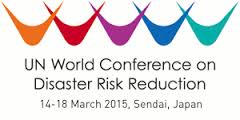A thought on hortizontal inequality, gender and conflict
Shared responsibility - inland waters, Trincomalee Here’s a brief, somewhat academic blog – inspired by listening to Frances Stewart at a webinar organised by ODI, in the context of doing a Gender Synthesis of the first round of panel data for the Secure Livelihoods Research Consortium. Most of my readers may want to escape from this rather unexpected theoretical musing on my part! My problem is that I am not sure that gender falls into how Frances Stewart conceptualises Horizontal Inequality , even though in some of her writing she thinks it does (1); and even though, from an external analytical perspective there are visible structural inequalities between women and men. So as Stewart et al point out, gender as a group affiliation matters, because it is tightly bounded and members can’t move from one gender to another and because being a member of the group, results in levels of discrimination (ibid). What I am not sure about is whether “ members of the gro
